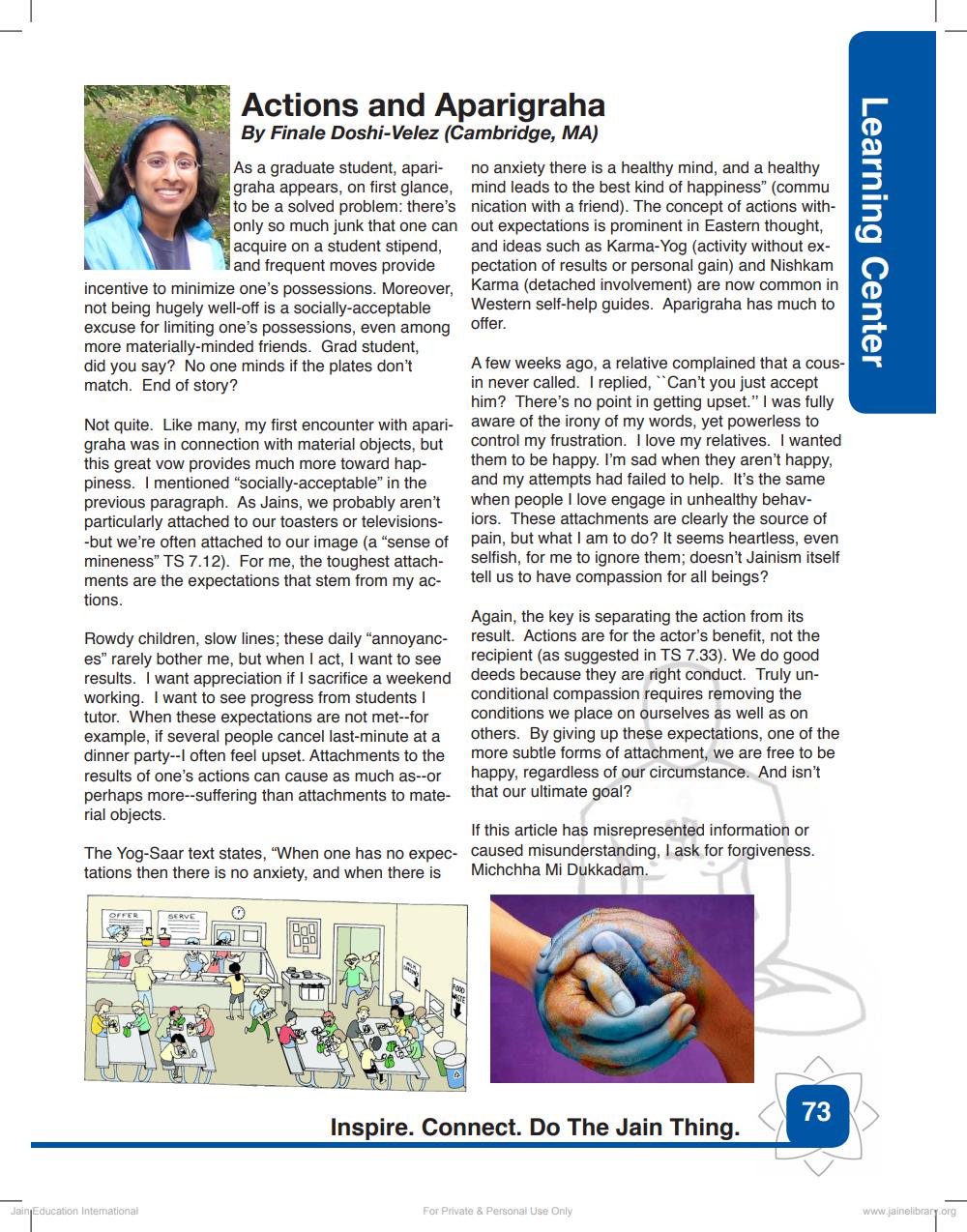________________
Actions and Aparigraha By Finale Doshi-Velez (Cambridge, MA)
Learning Center
As a graduate student, apari- no anxiety there is a healthy mind, and a healthy graha appears, on first glance, mind leads to the best kind of happiness" (commu to be a solved problem: there's nication with a friend). The concept of actions withonly so much junk that one can out expectations is prominent in Eastern thought, acquire on a student stipend, and ideas such as Karma-Yog (activity without ex
and frequent moves provide pectation of results or personal gain) and Nishkam incentive to minimize one's possessions. Moreover, Karma (detached involvement) are now common in not being hugely well-off is a socially-acceptable
Western self-help guides. Aparigraha has much to excuse for limiting one's possessions, even among offer. more materially-minded friends. Grad student, did you say? No one minds if the plates don't
A few weeks ago, a relative complained that a cousmatch. End of story?
in never called. I replied, "Can't you just accept
him? There's no point in getting upset." I was fully Not quite. Like many, my first encounter with apari- aware of the irony of my words, yet powerless to graha was in connection with material objects, but
control my frustration. I love my relatives. I wanted this great vow provides much more toward hap- them to be happy. I'm sad when they aren't happy, piness. I mentioned "socially-acceptable" in the and my attempts had failed to help. It's the same previous paragraph. As Jains, we probably aren't when people I love engage in unhealthy behavparticularly attached to our toasters or televisions- iors. These attachments are clearly the source of -but we're often attached to our image (a "sense of pain, but what I am to do? It seems heartless, even mineness" TS 7.12). For me, the toughest attach
selfish, for me to ignore them; doesn't Jainism itself ments are the expectations that stem from my ac- tell us to have compassion for all beings? tions.
Again, the key is separating the action from its Rowdy children, slow lines; these daily "annoyanc- result. Actions are for the actor's benefit, not the es" rarely bother me, but when I act, I want to see recipient (as suggested in TS 7.33). We do good results. I want appreciation if I sacrifice a weekend deeds because they are right conduct. Truly unworking. I want to see progress from students
conditional compassion requires removing the tutor. When these expectations are not met--for
conditions we place on ourselves as well as on example, if several people cancel last-minute at a others. By giving up these expectations, one of the dinner party--I often feel upset. Attachments to the more subtle forms of attachment, we are free to be results of one's actions can cause as much as--or happy, regardless of our circumstance. And isn't perhaps more--suffering than attachments to mate that our ultimate goal? rial objects.
If this article has misrepresented information or The Yog-Saar text states, "When one has no expec- caused misunderstanding, I ask for forgiveness. tations then there is no anxiety, and when there is Michchha Mi Dukkadam.
Page
73
Inspire. Connect. Do The Jain Thing.
Jain Education International
For Private & Personal Use Only
www.jainelibrary.org




